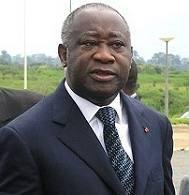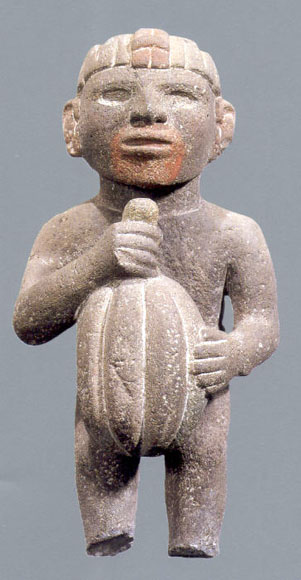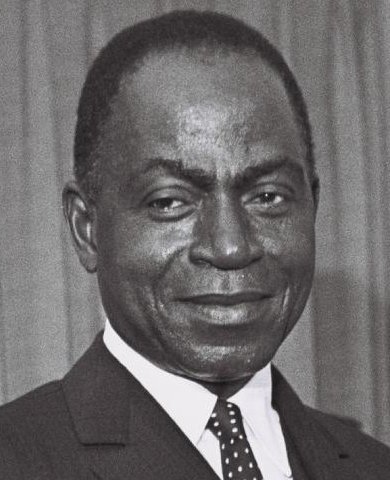|
Simone Gbagbo
Simone Ehivet Gbagbo (born 20 June 1949), National Assembly website (2007 archive page) . is an Ivorian politician. She is the President of the Parliamentary Group of the Ivorian Popular Front (FPI) and is a Vice-President of the FPI. As the wife of Laurent Gbagbo, the President of Côte d'Ivoire from 2000 to 2011, she was also First Lady of Ivory Coast prior to their arrest by pro-Ouattara forces. Biography Born in 1949 in Moossou, Grand-Bassam as Simone Ehivet, the daughter of Jean Ehivet, a local police officer, and Marie Djaha, Simone Gbagbo trained as a historian and earned a third cycle doctorate in oral literature. She worked in applied linguistics as a Marxist labor union leader and been nicknamed in the Ivorian press as the "Hillary Clinton des tropiques". The mother of five daughters, the last two with her current husband, Laurent Gbagbo, she participated in the teachers' strike movement of 1982. Simone and Laurent Gbagbo, before their marriage, co-founded the clandes ... [...More Info...] [...Related Items...] OR: [Wikipedia] [Google] [Baidu] |
Moossou
Grand-Bassam () is a town in southeastern Ivory Coast, lying east of Abidjan. It is a sub-prefectures of Ivory Coast, sub-prefecture of and the seat of Grand-Bassam Department; it is also a Communes of Ivory Coast, commune. During the late 19th century, Grand-Bassam was briefly the French colonial capital of Ivory Coast. Because of its outstanding examples of colonial architecture and town-planning, and the juxtaposition of the colonial town with a traditional Nzema people, Nzema village, the historic center of Grand-Bassam was designated a UNESCO World Heritage Site in 2012. In 2021, the population of the sub-prefecture of Grand-Bassam was 124,567. Geography The town is divided by the Ébrié Lagoon into two-halves: ''Ancien Bassam'' is the former French settlement, facing the Gulf of Guinea. It is home to the grander colonial buildings, some of which have been restored. The district is also home to a cathedral and the Ivory Coast National Museum of Costume, located in the f ... [...More Info...] [...Related Items...] OR: [Wikipedia] [Google] [Baidu] |
National Assembly Of Côte D'Ivoire
The National Assembly is lower house of the Parliament of Ivory Coast since November 2016. From 1960 to 2016, the National Assembly was Ivory Coast's unicameral legislative body. Evolved from semi-representative bodies of the French Colonial period, the first National Assembly was constituted on 27 November 1960 with 70 elected members (''députés'') in accordance with the Constitution of 31 October 1960, which created the First Republic. Legislative power in Ivory Coast is exercised by Deputies elected from Constituencies (''Circonscriptions'') by a ''Scrutin de Liste'' or Plurality-at-large voting which has neither a proportional representation or ''panachage'' element common in many such systems. The powers of this Assembly expire at the end of its second regular session (''session ordinaire'') in the fifth year of its mandate. The Assembly is then reformed by election from candidates who must be Ivorian citizens of 25 years or older who have never renounced their Ivoria ... [...More Info...] [...Related Items...] OR: [Wikipedia] [Google] [Baidu] |
2010–2011 Ivorian Crisis
The 2010–11 Ivorian crisis was a political crisis in Ivory Coast which began after Laurent Gbagbo, the President of Ivory Coast since 2000, was proclaimed the winner of the Ivorian election of 2010, the first election in the country in 10 years. The opposition candidate, Alassane Ouattara, and a number of countries, organisations and leaders worldwide claimed Ouattara had won the election. After months of attempted negotiation and sporadic violence, the crisis entered a decisive stage as Ouattara's forces began a military offensive in which they quickly gained control of most of the country and besieged key targets in Abidjan, the country's largest city. At the time, international organizations reported numerous human rights violations, and the UN undertook its own military action with the stated objective to protect itself and civilians. A significant step in bringing an end to the crisis occurred on 11 April 2011 upon the capture and arrest of Gbagbo in Abidjan by pro-Ouat ... [...More Info...] [...Related Items...] OR: [Wikipedia] [Google] [Baidu] |
2008 Ivorian Presidential Election
Presidential elections were held in Ivory Coast in 2010. The first round was held on 31 October, and a second round, in which President Laurent Gbagbo faced opposition leader Alassane Ouattara, was held on 28 November 2010. Originally scheduled to be held in 2005, the vote was delayed several times due to the First Ivorian Civil War, Ivorian Civil War and difficulties involved in the organization and preparation of the elections. A peace agreement between the government and the former rebel Forces Nouvelles de Côte d'Ivoire, New Forces was signed on 4 March 2007,"Ivorian president vows to hold elections as scheduled" Xinhua (''People's Daily''), 10 July 2007. and in late April 2009, it was announced that the elections would be held by 6 December 2009, and that the date would be announced ... [...More Info...] [...Related Items...] OR: [Wikipedia] [Google] [Baidu] |
Bouaké
Bouaké (or Bwake, N’ko: ߓߐ߰ߞߍ߫ ''Bɔ̀ɔkɛ́'') is the second-largest city in Ivory Coast, with a population of 740,000 (2021 census). It is the seat of three levels of subdivision—Vallée du Bandama District, Gbêkê Region, and Bouaké Department. The city is located in the central part of Ivory Coast about northeast of Lake Kossou, the country's largest lake. It is approximately north of Abidjan on the Abidjan-Niger Railway and about northeast of Yamoussoukro, the capital of the country. Name For the name of the city Bouaké, there are two possible origins: * The corruption of the chief name Kwa Gbéké that made the foundations of the city of Bouaké. * The name Bouaké coming from two Baoulé words: "Boua" which means sheep and "Ké" which means dry. Thus meaning the place in which sheep are dried as they would have seen Jola drying sheep skins when they arrived in Bouaké. Demographics History In the 1800s a group related to the Akan, the Assabou ... [...More Info...] [...Related Items...] OR: [Wikipedia] [Google] [Baidu] |
Paul-Antoine Bohoun Bouabre
Paul-Antoine is a French masculine given name. It may refer to: * Paul Antoine Bien-Aimé, Minister of the Interior and Territorial Collectivity of Haiti * Paul Antoine Dubois (1795-1871), French obstetrician * Paul-Antoine Giguère (1910–1987), Canadian academic and chemist * Paul-Antoine Léonard de Villefeix (born 1728), French Dominican priest * Paul Antoine Fleuriot de Langle (1744–1787), French vicomte, académicien de marine, naval commander and explorer See also * Paul (name) * Antoine Antoine is a French given name (from the Latin ''Antonius'' meaning 'highly praise-worthy') that is a variant of Danton, Titouan, D'Anton and Antonin. The name is used in France, Switzerland, Belgium, Canada, West Greenland, Haiti, French Guiana ... {{given name French masculine given names Compound given names ... [...More Info...] [...Related Items...] OR: [Wikipedia] [Google] [Baidu] |
Paul-Antoine Bohoun Bouabré
Paul-Antoine is a French masculine given name. It may refer to: * Paul Antoine Bien-Aimé, Minister of the Interior and Territorial Collectivity of Haiti * Paul Antoine Dubois (1795-1871), French obstetrician * Paul-Antoine Giguère (1910–1987), Canadian academic and chemist * Paul-Antoine Léonard de Villefeix (born 1728), French Dominican priest * Paul Antoine Fleuriot de Langle (1744–1787), French vicomte, académicien de marine, naval commander and explorer See also * Paul (name) * Antoine Antoine is a French given name (from the Latin ''Antonius'' meaning 'highly praise-worthy') that is a variant of Danton, Titouan, D'Anton and Antonin. The name is used in France, Switzerland, Belgium, Canada, West Greenland, Haiti, French Guiana ... {{given name French masculine given names Compound given names ... [...More Info...] [...Related Items...] OR: [Wikipedia] [Google] [Baidu] |
Cocoa Bean
The cocoa bean (technically cocoa seed) or simply cocoa (), also called the cacao bean (technically cacao seed) or cacao (), is the dried and fully fermented seed of ''Theobroma cacao'', from which cocoa solids (a mixture of nonfat substances) and cocoa butter (the fat) can be extracted. Cocoa beans are the basis of chocolate, and Mesoamerican foods including tejate, an indigenous Mexican drink that also includes maize, and pinolillo, a similar Nicaraguan drink made from a cornmeal & cocoa powder. Etymology The word ''cocoa'' comes from the Spanish word , which is derived from the Nahuatl word . The Nahuatl word, in turn, ultimately derives from the reconstructed Proto-Mixe–Zoquean word ''kakawa''. Used on its own, the term ''cocoa'' may also mean: * Hot cocoa, the drink more known as ''hot chocolate'' Terms derived from ''cocoa'' include: * Cocoa paste, ground cocoa beans: the mass is melted and separated into: ** Cocoa butter, a pale, yellow, edible fat ** Cocoa s ... [...More Info...] [...Related Items...] OR: [Wikipedia] [Google] [Baidu] |
Guy-André Kieffer
Guy-André Kieffer (born 25 May 1949) is a journalist of dual French and Canadian nationality who worked in West Africa generally, and in Côte d'Ivoire specifically. On April 16, 2004, he was kidnapped from an Abidjan parking lot and has not been seen since. In early 2012 remains suspected to belong to Kieffer were found in the department of Issia, in the west of Côte d'Ivoire. Career Kieffer was born and raised in France; his family lives in the region of Rhône-Alpes. He studied law in Montreal, and while there married a Canadian woman and obtained Canadian nationality; this marriage produced a son Sébastien-Cédric but later resulted in divorce. Kieffer was married to Osange Silou-Kieffer; they have a daughter Canelle. From 1984 to 2002, Kieffer worked for the French financial newspaper ''La Tribune''. Following this he worked in West Africa for a number of years, and wrote articles concerning Political corruption in African governments for several different publicatio ... [...More Info...] [...Related Items...] OR: [Wikipedia] [Google] [Baidu] |
United Nations
The United Nations (UN) is an intergovernmental organization whose stated purposes are to maintain international peace and international security, security, develop friendly relations among nations, achieve international cooperation, and be a centre for harmonizing the actions of nations. It is the world's largest and most familiar international organization. The UN is headquarters of the United Nations, headquartered on extraterritoriality, international territory in New York City, and has other main offices in United Nations Office at Geneva, Geneva, United Nations Office at Nairobi, Nairobi, United Nations Office at Vienna, Vienna, and Peace Palace, The Hague (home to the International Court of Justice). The UN was established after World War II with Dumbarton Oaks Conference, the aim of preventing future world wars, succeeding the League of Nations, which was characterized as ineffective. On 25 April 1945, 50 governments met in San Francisco for United Nations Conference ... [...More Info...] [...Related Items...] OR: [Wikipedia] [Google] [Baidu] |
Radio France International
Radio France Internationale, usually referred to as RFI, is the state-owned international radio broadcaster of France. With 37.2 million listeners in 2014, it is one of the most-listened-to international radio stations in the world, along with Deutsche Welle, the BBC World Service, the Voice of America, Radio Netherlands Worldwide, and China Radio International. RFI broadcasts 24 hours per day around the world in French and in 12 other languages in FM, shortwave, medium wave, satellite and on its website. It is a channel of the state company France Médias Monde. The majority of shortwave transmissions are in French and Hausa but also includes some hours of Swahili, Portuguese, Mandinka, and Russian. RFI broadcasts to over 150 countries on 5 continents. Africa is the largest part of radio listeners, representing 60% of the total audience in 2010. In the Paris region, RFI comprises between 150,000 and 200,000 listeners. In 2007, the audience was of 46.1 million listeners, break ... [...More Info...] [...Related Items...] OR: [Wikipedia] [Google] [Baidu] |
First Ivorian Civil War
The First Ivorian Civil War was a civil conflict in the Ivory Coast (also known as Côte d'Ivoire) that began with a military rebellion on 19 September 2002 and ended with a peace agreement on 4 March 2007. The conflict pitted the government of Ivorian President Laurent Gbagbo against a domestic insurgency led by the New Forces of Ivory Coast (''Forces nouvelles de Côte d'Ivoire''). The war was preceded by a tumultuous decade in Ivory Coast, marked by an economic downturn and, following the death of long-time Ivorian President Félix Houphouët-Boigny in December 1993, a leadership succession crisis. The succession crisis manifested in a 1999 military coup d'état and a violent dispute over the result of the 2000 presidential election. Three successive Ivorian leaders – Henri Konan Bédié from 1993, Robert Guéï from 1999, and Gbagbo from 2000 – exploited the ideology of Ivoirité to repress and marginalise political opposition, notably by disqualifying Alassane Ouattar ... [...More Info...] [...Related Items...] OR: [Wikipedia] [Google] [Baidu] |



